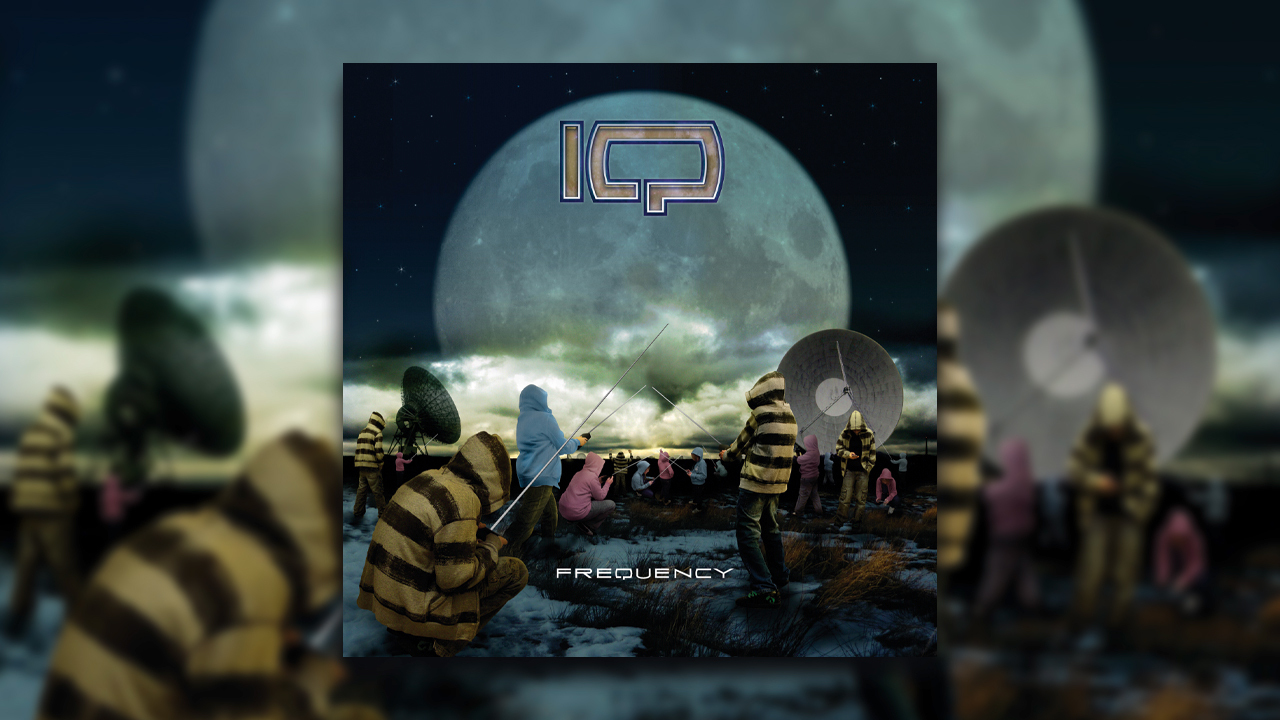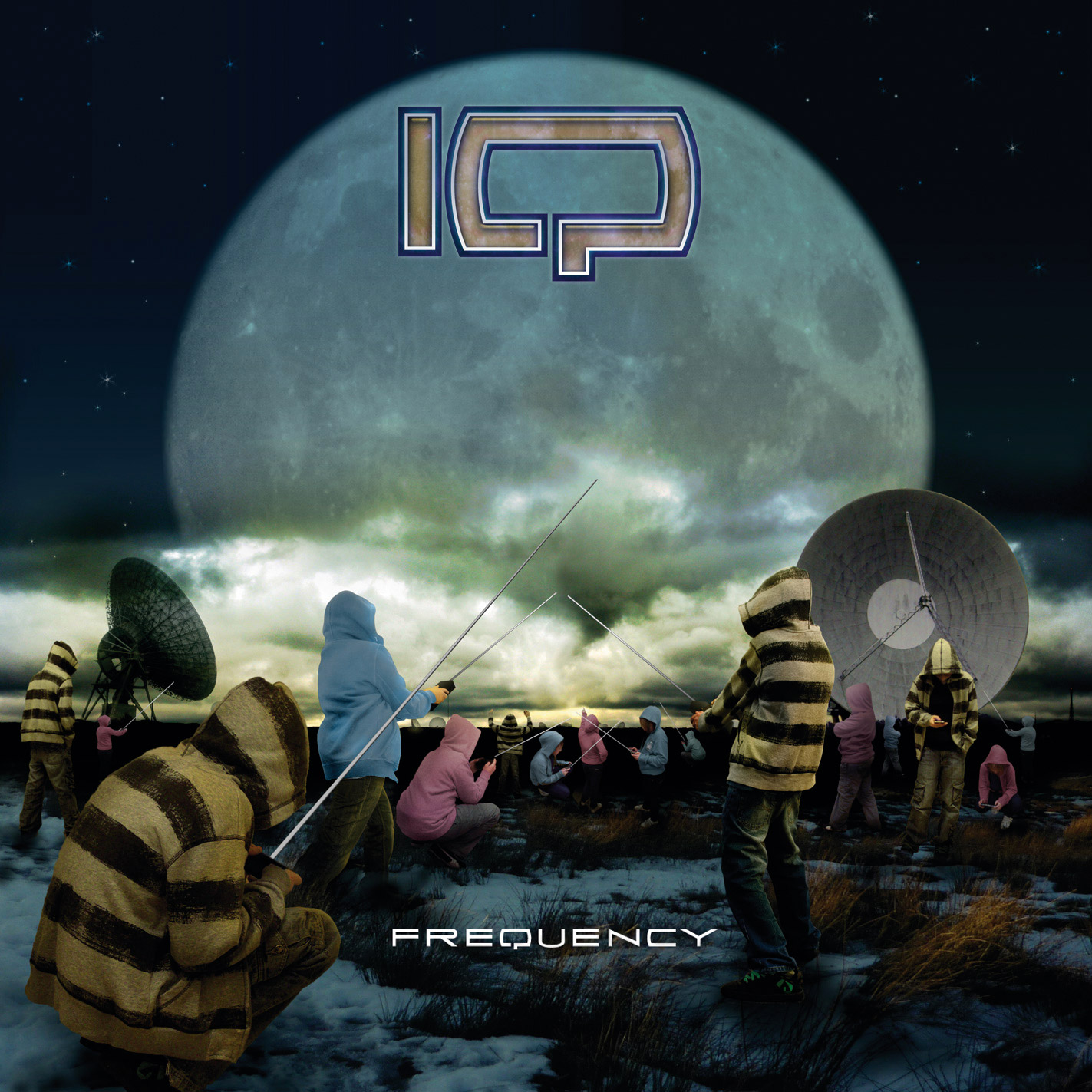
In comparison with the turbulent configurations of so many of their peers, until recently IQ had been one of the progressive scene’s more stable bands. Their line-up remain unchanged since singer Peter Nicholls returned to the fold for 1993’s Ever. However the title of the band’s last album, 2004’s Dark Matter, could be retrospectively interpreted as prophetic for the veteran band given the various upheavals they’ve since weathered. The first major change was when long-time drummer Paul Cook left IQ in 2005 after 23 years’ service.
As Cook’s replacement the band swiftly selected Andy Edwards, formerly of Robert Plant’s band and better known to a prog audience as a member of Frost*. But a more significant departure was to follow. During 2007, when the band was well through writing Frequency, keyboardist and co-founder Martin Orford tendered his resignation.

“Martin had become dissatisfied with the way we write. We’ve always made an effort to keep the material group written with brainstorming and people bringing in different ideas. We’ve written like that since 1981. But Martin found that increasingly frustrating, especially in light of his experience as captain of the ship on his own solo work. He found it more difficult to compromise and go along with other people’s visions of how the material should be.”
Nicholls readily admits that Orford’s departure came as a shock and at first appeared a potential knock-out blow. “Martin was a key member of the band for 27 years and his partnership with [guitarist] Mike Holmes was very special. There was sometimes friction, but that tension produced some magical stuff.”
Following Orford’s departure the band drew a veil over the new album for a period. Then in 2008 Nicholls caught pneumonia and spent several days in hospital, initially doubting whether he would return to the band. “This album has had a fairly troubled birth,” he admits dryly.
But IQ is a resilient beast and, as Nicholls points out, has survived other departures over the years. Nicholls himself left the band in 1986, which presaged a more commercially-orientated period with the band fronted by Paul Menel that resulted in the Nomzamo and Are You Sitting Comfortably albums in 1987 and 1989 respectively. “The band is stronger as a whole than its individual parts; something indefinable happens when we’re all together.”

IQ chose to replace Orford by recruiting Darwin’s Radio keyboardist Mark Westworth. “Mark has the right sounds to reproduce our existing material, a good relaxed attitude and he wasn’t overawed by learning a wealth of material.” Westworth was also able to contribute to the writing of the album, not least playing a key role in finalising 14-minute epic The Province which the band had been struggling with.
IQ’s personnel changes, however, were not exhausted prior to the album’s release. “Andy needs to take time out from the band for about a year for personal reasons. But given the album’s release we need to do some live work.” The obvious choice was to see if Paul Cook would stand in and their long-serving former drummer obliged. “He’s thoroughly enjoying it,” Nicholls reports. “He’s found a burst of enthusiasm again for the band – he’d missed it. He was playing with a jazz trio but missed making big noises with IQ.”
So IQ is back at full strength. But with all the upheavals, did Nicholls wonder if the band had reached the end of the road? “I’d be lying if I said it wasn’t in my mind. When Paul left, I queried if the band would survive or if I wanted to keep doing it. I thought that if we didn’t find someone to replace Paul the writing was on the wall. Finding Andy, though, was easier than I expected. But it’s always traumatic when someone leaves and when Martin left I wasn’t sure we’d survive. However the band bonds more in the face of adversity and we had a collective determination to get through it.”
But with Westworth’s recruitment the band has not only survived but it has delivered a stunning album. “Frequency is one of our best pieces of work,” Nicholls states, suggesting that the album is more layered and demonstrates greater maturity than Dark Matter. “We don’t want to repeat ourselves; we want to keep the brand identity of IQ but refresh it each time. Progressive rock has a template just like heavy metal or dance music. We’ve spent years defining the sound of IQ but within those parameters we’ve always tried to introduce some unexpected element.”

Indeed Frequency is immediately identifiable as an IQ album but features some of the band’s more accessible and most memorable material. It’s now five years since Dark Matter and Nicholls is well aware that the music world has moved on. “The way music is consumed has changed so much since our last album.” As a result with illegal downloading in mind – one of Orford’s reasons for his subsequent retirement completely from music last year – Nicholls acknowledges that the band’s sales may fall, but isn’t overly concerned by that prospect. “The only thing that interests me is whether the album is good. We can’t control how many people will like it or buy it. I don’t necessarily agree with everything Martin said and I don’t think that the situation is as black as he says. Progressive music breeds particular loyalty and people want to support the artists. We have a loyal fanbase who will support what we do as long as it is of a high standard.”
IQ of course is hardly the most prolific band with albums generally four or five years apart. Nicholls explains: “If you can’t come up with a decent album in that period you should pack it in. Our ambition now is to make a better album than the last one. If the current album wasn’t as strong as the previous one, I’d wonder if the band had run its course. We have to keep producing material that stands up against our earlier material and keep enjoying it. Gigs will come and go; but when it’s all over we’ll be judged by our albums.”
And while not many bands create their strongest album after almost 30 years in existence, IQ might just be able to make that claim.
This article originally appeared in issue 2 of Prog Magazine.







